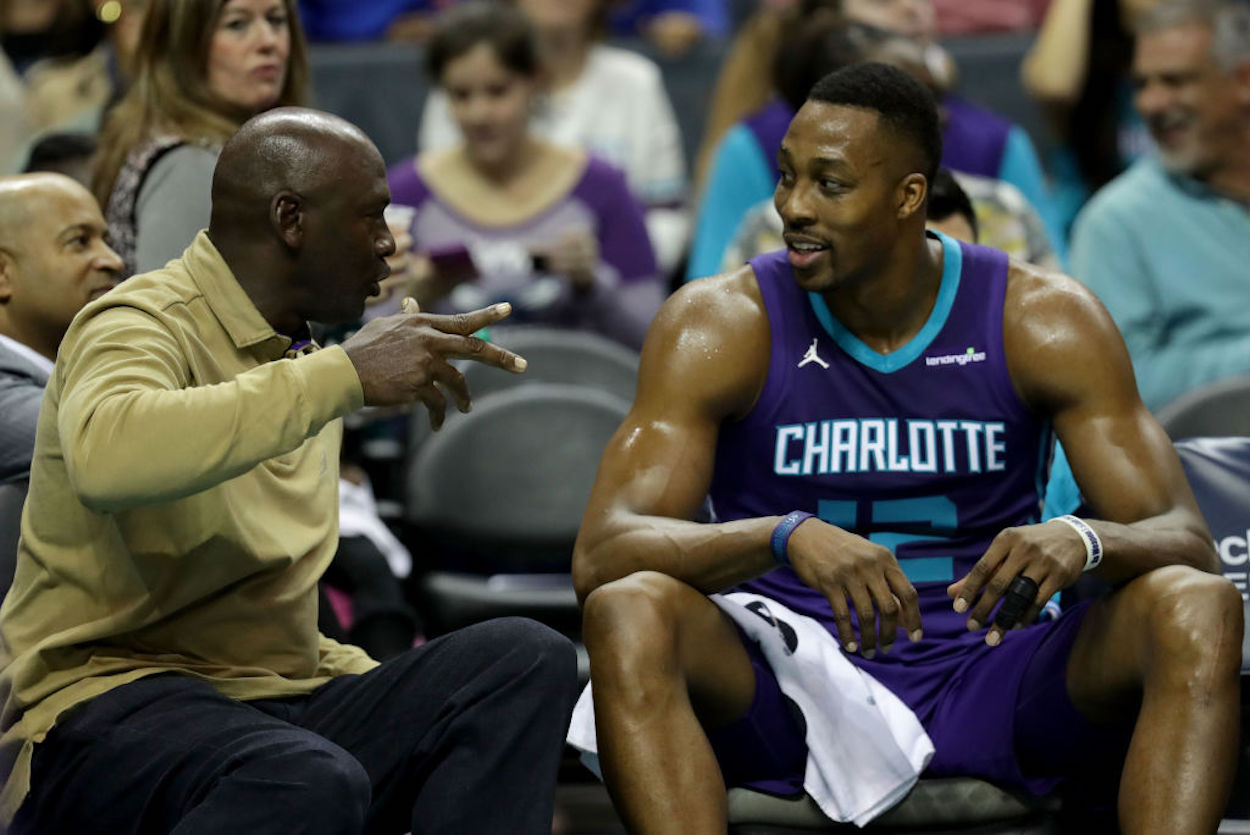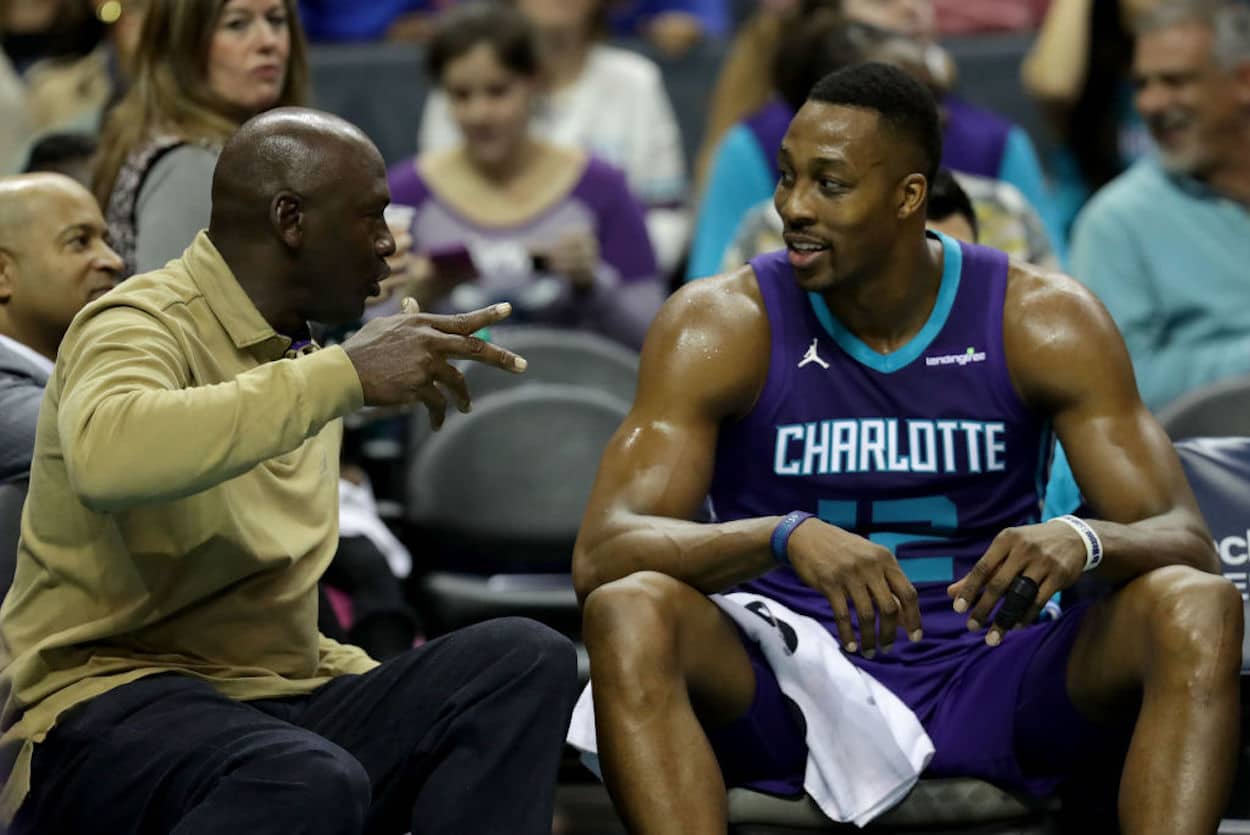NBA
Michael Jordan Is Happy to Help His Hornets, but He’ll Also ‘Kill Them’ On the Court

Whether we’re discussing his playing career or his public-facing personality, Michael Jordan can be a divisive figure. Some consider him the ultimate winner. If he ruffles a few feathers along the way, that’s simply the price of dealing with greatness. Others perceive MJ as an incredibly talented jerk; no amount of success entitles you to belittle coworkers or punch them in the face.
So, where does the truth sit? As with most situations, reality is somewhere between the two extremes. Just ask Bismack Biyombo about that.
While the big man has bounced around during his NBA career, he spent a few seasons in Charlotte. There, he got a good look at His Airness.
Michael Jordan dispenses both advice and basketball beatdowns, says Bismack Biyombo
Over the years, stories have emerged about Michael Jordan showing up to practice and beating the team at their own game. While Bismack Biyombo did witness that during his time in North Carolina, it wasn’t the entirety of MJ’s contribution to the club. Things, on the whole, took on a much more positive tone.
“He’s always there to give advice to players and stuff,” the Suns center told Dana Scott of AZ Central. “It’s somebody that I always know that I could reach out to if I need any advice whether you’re with their team or you’re playing for another team.”
With that being said, though, spending time around His Airness isn’t all sunshine and rainbows. If you meet him on the basketball court, you’re still in for a long day.
“Mike is Mike, man. I’ve seen him play one-on-one with players after the games, and one by one was taking them out. So this was probably I think seven, eight years ago,” Biyombo continued. “He would come into practice and just play one-on-one with players and just kill them, 100 percent. I [didn’t] think he could move like that.”
Even when things were largely shut down during 2020, Jordan still wasn’t one to mess with.
“I think somebody during COVID [in 2020] actually challenged him because we had a phone call, and [he] said, ‘Give me a couple months, I just need to get in shape. I don’t need to run and all that, but just a couple months, and I’ll be ready for one-on-one,'” the former Hornet added. “I wouldn’t suggest anybody to do that [laughs].”
That duality seems to be par for the course when you’re dealing with MJ

Upon first glance, that duality might feel a bit strange. How could MJ be happy to help in some situations, but also be more than willing to chew out his team? At this point, though, that seems to be the way things work.
Take, for example, Scottie Pippen. While he and MJ haven’t always seen eye-to-eye, especially after The Last Dance, Pip has never wavered from one crucial position: He’d gladly team up with Jordan on the basketball court.
Alternatively, consider Steve Kerr. While the two men came to blows during their time in Chicago, that wasn’t a long-term problem. If anything, the guard felt that it ultimately strengthened their bond. While that’s not an ideal way to build chemistry, they got there in the end.
At the risk of breaking out a classic sports cliche, the best summary seems to be “game recognizes game.” In the heat of competition, he could also respect those who met his standards. Consider Kobe Bryant, for example. The younger man eventually won MJ over with a willingness to push beyond fandom and learn from those who came before him. That, in turn, laid the foundations of what became a brotherly bond.
From a fan’s narrative-driven perspective, that might feel a bit unsatisfying. It’s easy to desire a digestible solution. Michael Jordan is either exactly the jerk we suspect, or he’s secretly a great guy. This, however, is real life. The answer doesn’t have to fit neatly into one box or the other; it can sit somewhere between the two extremes.
Bismack Biyombo’s words are a perfect reminder of that reality.











